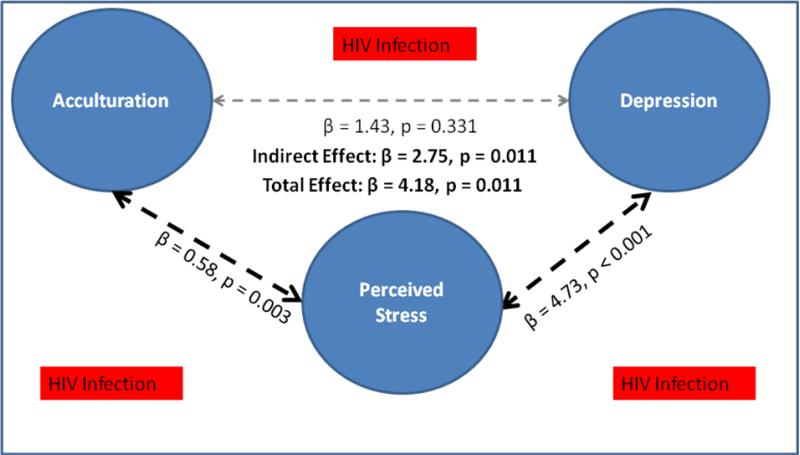Figure 1. Low (25%) Acculturation.
Notes : The direct relationship between acculturation and depression was nonsignificant, as were both of the indirect relationships with stress (β= 0.58; p = 0.003 & β = 0.39; p = 0.007). Participants with low acculturation had a total relationship between stress and depression that summed up both direct and indirect relationships (β = 4.73, p < 0.001& β = 4.73; p <0.001) which was significant at a level of 0.05 level, even after controlling for gender, ethnicity, education level, age, and health status. However, for highly acculturated study participants, the direct relationship between acculturation and depression was nonsignificant, as was the relationship between acculturation and stress. Only stress was significantly related to depression (β= 4.73; p < 0.001). This suggests that the relationship between acculturation and depression, at 66% and 72%, was mediated by stress in low-to-moderately acculturated study participants. In other words, the relationship between acculturation and depression is not mediated by stress in highly acculturated participants.

